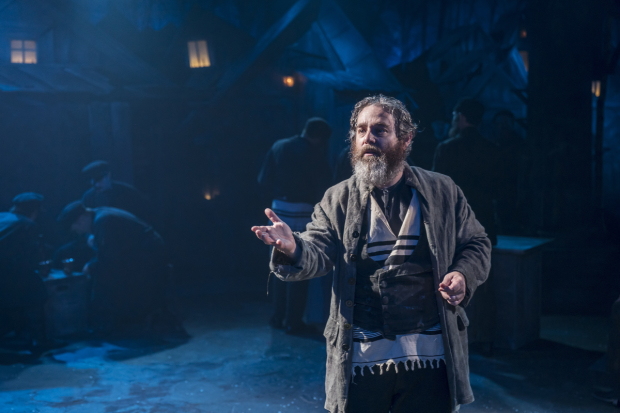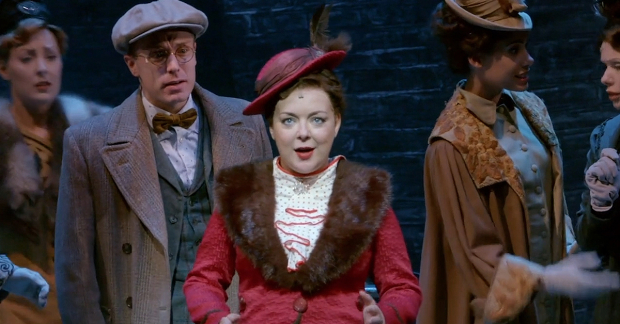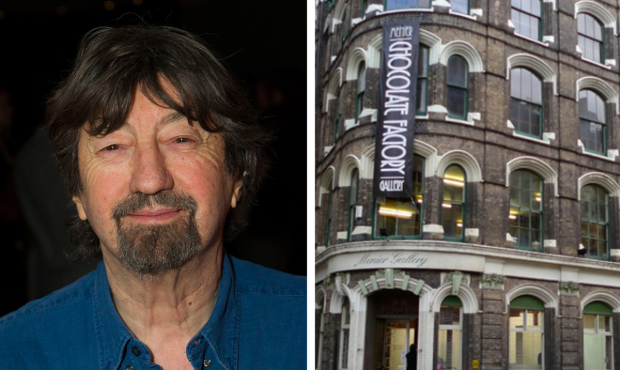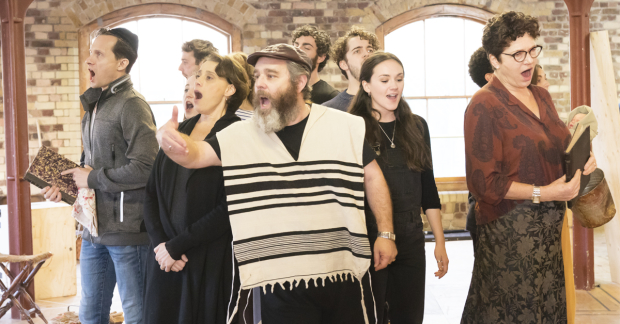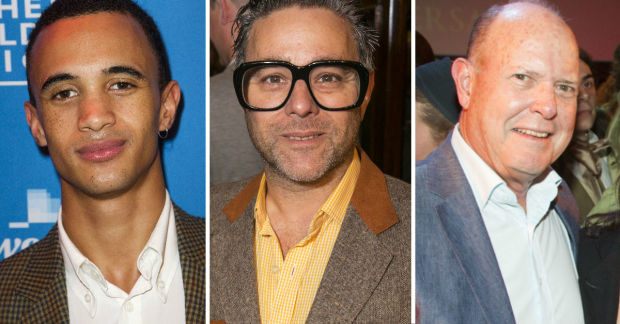Review: Fiddler on the Roof (Menier Chocolate Factory)
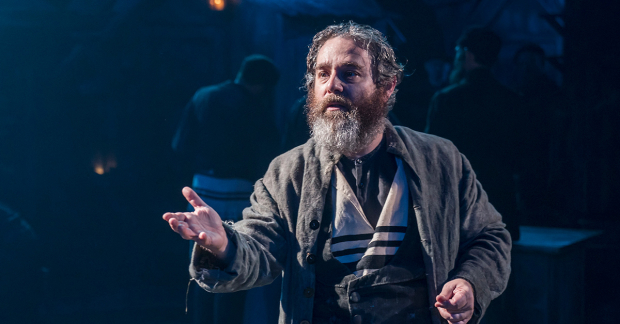
© Johan Persson
Walking into the Menier Chocolate Factory is like walking into a shtetl in early 20th century Russia, dark and smoky. The wooden slats and gable-roofed shacks of Robert Jones' set embrace you. Alongside you, stand figures in well-worn black, dusty brown and gray, their heads covered, their prayer aprons poking out from their heavy coats. Every detail has a texture, a delicacy and authenticity.
This is true of each aspect of Trevor Nunn's magnificent revival. You forget, or I do sometimes, Nunn's alchemist's ability to play Shakespeare like a musical and a musical like Shakespeare. But here it renders the ever-popular Fiddler into an extraordinarily emotional and powerful telling of the way that change affects the life of the milkman Tevye, his wife Golde and their five daughters, just as the pogroms against the Jewish people deprive them of their traditional home.
Built over a long period, under the impassioned direction of Jerome Robbins, the musical, with its book by Joseph Stein (based on stories by Sholem Aleichem), music by Jerry Boch, and lyrics by Sheldon Harnick, is always tuneful but can appear hokey. Not here. Nunn and his excellent cast mine the meaning from each word and every note. Songs become soliloquies, dances the expression of deep psychological and sociological barriers. The result can't quite disguise the episodic nature of the second act, but it is nonetheless overwhelming and engrossing.
From the very start, Andy Nyman's Tevye, finds his own way through the milkman's conversations with God, about his life and his troubles. The famous opening line of "If I Were a Rich Man" becomes a combination of a wish and a grumble about the pain in his back; as he negotiates the song those little "daidle deedle daidle" fillers become different statements of his mental state, until they break out finally into an exuberant dance, and Nyman powers round the stage, arms raised.
The freshness and directness of his reading is the heart of the entire show. And the feeling he finds as he confronts the difficulties of three of his daughter's marriages, bending to new realities until he finds the final yielding, when Chava wants to marry outside the faith, too much, is emphasised by staging that shapes the scenes like a repeated pattern. He's helped too by sensational performances from the daughters – Molly Osborne in a glorious debut as Tzeitel, who marries a tailor, Harriet Bunton as Hodel who pins her heart to revolutionary Perchik, and Kirsty MacLaren who breaks ranks to marry Fyedka. Each finds a subtlety and a spirit in characters who can all too easily become bland.
But everything has a vivid point. Robbins's own choreography, honed by Matt Cole to fit the space, retains its passionate exuberance, and its political purpose: in "To Life", where the fierce Cossack steps of the Russian soldiers are entwined with the meandering circles of the Jewish revellers, two cultures visibly collide then meld; in the marvellous bottle dance which accompanies Tzeitel and Motel's wedding, an old tradition is celebrated just as a new one (of men and women dancing together) breaks out. Rarely has dance in a musical had such a metaphorical punch.
In the staging of "Tevye's Dream", Nunn shows the same flair, making the characters who appear from the grave a vivid kaleidoscope of colour to set against the monochrome truths of daily life; in the calm of "Sunrise, Sunset and Sabbath Prayer" he celebrates the rituals that hold the community together.
There's so much to admire: Jonathan Lipman's perfectly judged costumes; a band that sounds like a billion dollars, and musical arrangements by Paul Bogaev that make the score gleam; the performances from Joshua Gannon as the frightened Motel and Stewart Clarke as the fiery Perchik that turn their single solos into expressions of character and purpose; a Golde from Judy Kuhn who brings "Do You Love Me?" to touching life. And the final scene, when as the villagers of Anatevka trudge slowly across the stage, they seem to stand for the lost and dispossessed everywhere, looking for hope as the notes of Darius Luke Thompson's fiddler fade into nothingness.



